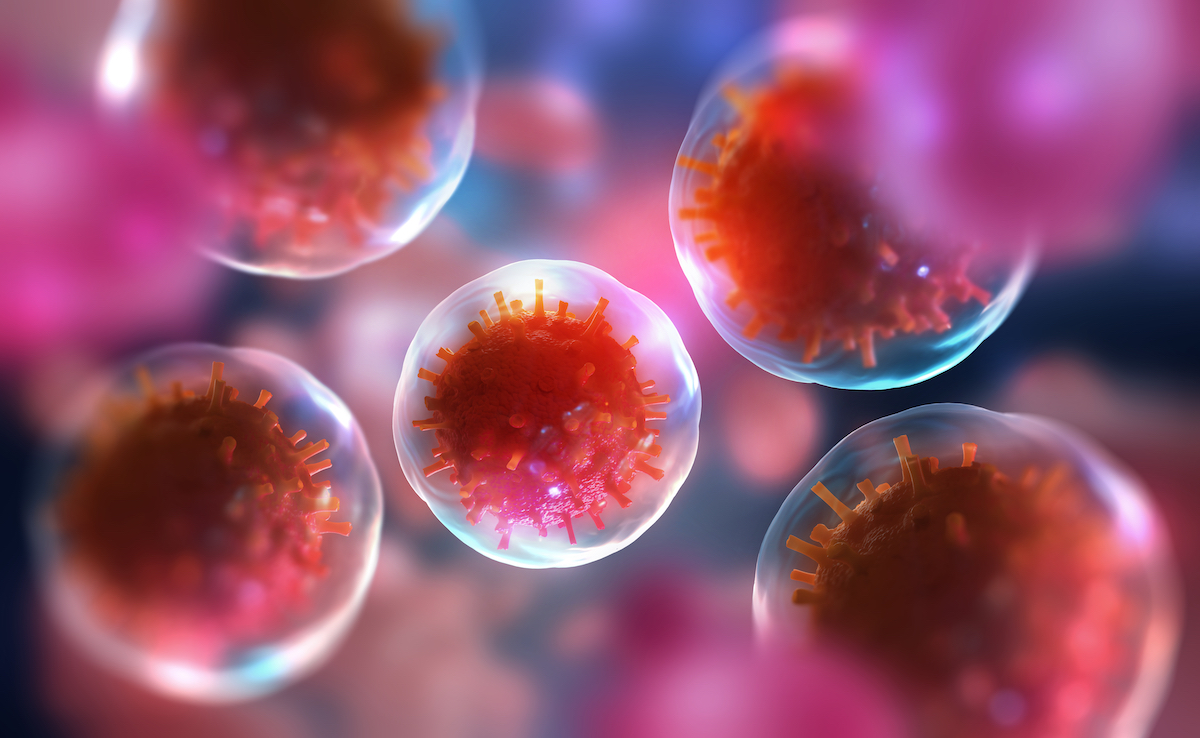A new study links the lifelong accumulation of genetic alterations to blood stem cells with dramatic changes in blood production that lead to the abrupt deterioration of organ function after the age of 70.
All human cells acquire genetic changes, or somatic mutations, throughout life. Aging is likely to be caused by the accumulation of multiple types of damage to our cells over time, with one theory being that build-up of somatic mutations causes cells to progressively lose functional reserve.
Despite this, it is currently unclear how such a gradual accumulation of molecular damage leads to the abrupt deterioration in how our organs function after the age of 70.
To investigate this process, researchers from the Wellcome Sanger Institute and the Cambridge Stem Cell Institute studied the production of blood cells from the bone marrow, analyzing 10 individuals ranging in age from new-borns to the elderly. They sequenced the whole genomes of 3,579 blood stem cells, identifying all the somatic mutations contained in each cell.
The data allowed the team to reconstruct the ‘family trees’ of each person’s blood stem cells, showing, for the first time, an unbiased view of the relationships among blood cells and how these relationships change across the human lifespan.
The researchers found that these ‘family trees’ changed dramatically after the age of 70 years.
The production of blood cells in adults aged under 65 came from 20,000 to 200,000 stem cells, each of which contributed in roughly equal amounts. In contrast, blood production in individuals aged over 70 was very unequal. A reduced set of expanded stem cell clones – as few as 10 to 20 – contributed as much as half of all blood production in every elderly individual studied.
These highly active stem cells had progressively expanded in numbers across that person’s life, caused by a rare subset of somatic mutations known as ‘driver mutations’.
These findings led the team to propose a model in which age-associated changes in blood production come from somatic mutations causing ‘selfish’ stem cells to dominate the bone marrow in the elderly.
This model, with the steady introduction of driver mutations that cause the growth of functionally altered clones over decades, explains the dramatic and inevitable shift to reduced diversity of blood cell populations after the age of 70. Which clones become dominant varies from person to person, and so the model also explains the variation seen in disease risk and other characteristics in older adults.
Dr Emily Mitchell, lead researcher on the study, said: “Our findings show that the diversity of blood stem cells is lost in older age due to positive selection of faster growing clones with driver mutations.
“These clones ‘out compete’ the slower growing ones. In many cases this increased fitness at the stem cell level likely comes at a cost – their ability to produce functional mature blood cells is impaired, so explaining the observed age-related loss of function in the blood system.”
Dr Elisa Laurenti, joint senior researcher on this study, said: “Factors such as chronic inflammation, smoking, infection and chemotherapy cause earlier growth of clones with cancer-driving mutations.”
“We predict that these factors also bring forward the decline in blood stem cell diversity associated with aging.”
It is possible that there are factors that might slow this process down, too. We now have the exciting task of figuring out how these newly discovered mutations affect blood function in the elderly, so we can learn how to minimize disease risk and promote healthy ageing.”
Dr Peter Campbell, Head of the Cancer, Aging and Somatic Mutation Program at the Wellcome Sanger Institute, said:
“We’ve shown, for the first time, how steadily accumulating mutations throughout life lead to a catastrophic and inevitable change in blood cell populations after the age of 70.”
“What is super exciting about this model is that it may well apply in other organ systems too. We see these selfish clones with driver mutations expanding with age in many other tissues of the body – we know this can increase cancer risk, but it could also be contributing to other functional changes associated with aging.”
Source: Emily Mitchell, Michael Spencer Chapman, Nicholas Williams, et al. Clonal dynamics of haematopoiesis across the human lifespan. Nature, 2022 DOI: 10.1038/s41586-022-04786-y












